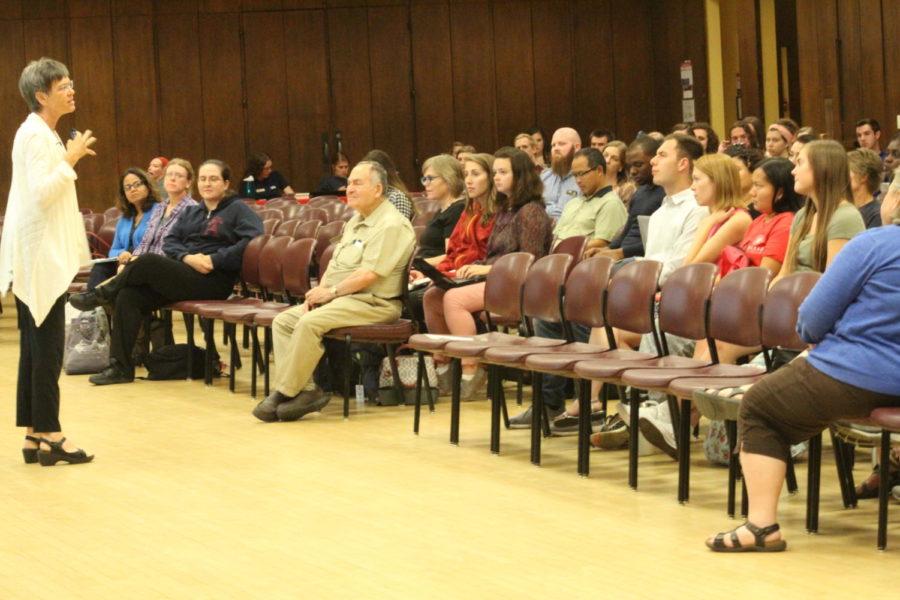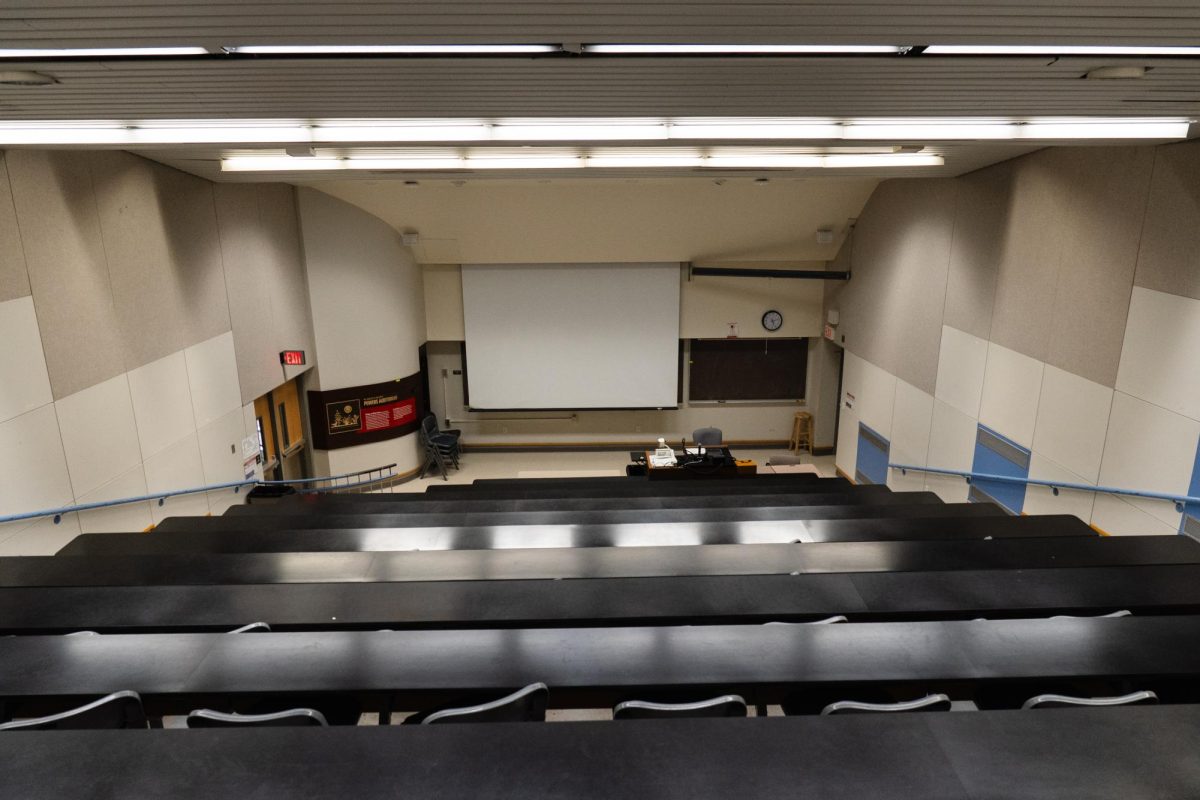Lecture: The question of vocation, and what we can ask ourselves
Audience members interact with Professor of Theology Kathleen Cahalan as she presents “Called to Lives of Meaning and Purpose: A New Approach to Vocation” in the Memorial Union Monday night.
September 10, 2018
When it comes to discovering callings in life, many young adults find themselves in a predicament — money, societal pressures, and even family criticism can all be driving forces in career choices, both positive and negative.
Regardless of religious affiliation, a vocation of passion and beauty is not without suffering. Most importantly, a true pursuit toward the greater good is free from selfish individualism.
This is the message Kathleen Cahalan, professor of Theology at Saint John’s School of Theology and Seminary, presented Monday during her lecture, “Called to Lives of Meaning and Purpose: A New Approach to Vocation.”
Using personal experiences from inter-religious adults, Cahalan was able to connect this research over multiple generations.
The act of parents, to guide and provide, is essential in assisting with a child’s pursuit of enjoyment, as well as employment.
However, as we reach young adulthood, our inner calling can easily be disrupted, Cahalan said.
Cahalan, along with other older audience members, said they have seen a “strain of individualism” in the world today.
Quoting Robert Bellah, she claimed a “sense of profession” would be a possible way to “revive a sense of the common, or public, good.”
Genuine service through employment is the key, not money.
“People see a vocation as one thing you figure out in your young adult years,” Cahalan said.
Relating to joy, she played videos of interviews with adults who had gripped with their callings rather than boxing them away. For one man, woodworking had appeared as nothing more than another pursuit, tried and put on the back-burner.
However, his love never truly faded. Even when his passion was high and income low, his wife encouraged him to follow his vocation.
Inexperienced, yet eager, we miss the three key components that make for a purposeful life: joy, talents & gifts, and genuine service, Cahalan said.
But overall, vocation is by no means an individualistic concept, she said, adding that one’s relationship with God and each other add to the human experience.
“The most powerful stories of God’s calling in our lives is when people tell us ‘I could not, not do that,” Cahalan said.
















